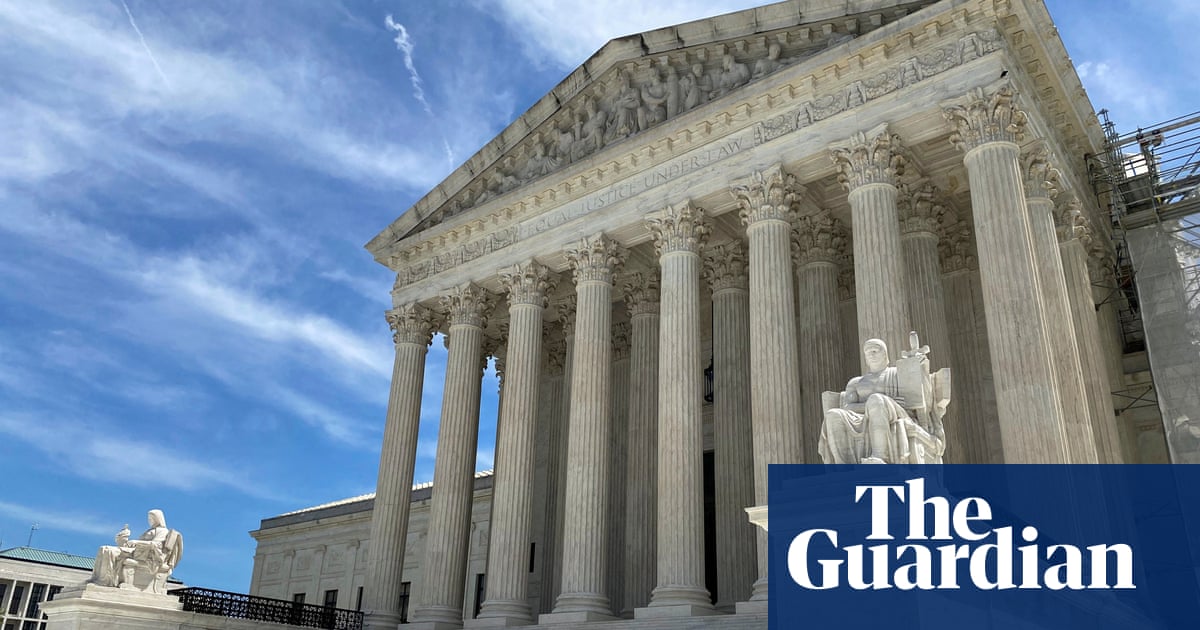A protest march - expected to be one of the largest in New Zealand history - is due to arrive at parliament today, to oppose a controversial bill that could drastically alter the way the country’s founding treaty between Māori and the crown is interpreted.
The hīkoi mō te Tīriti (march for the treaty) began nine days ago at the northern-most tip of the country and has been winding its way down the North Island towards Wellington. Tens of thousands of New Zealanders have turned out on foot, by car or on horseback to support the demonstration along the way, flooding urban centres with the red, white and black of the tino rangatiratanga flag – a national Māori flag that has become a prominent symbol of Māori sovereignty.
Up to 50,0000 are expected to participate in the last stage of the hīkoi organisers said on Monday, which would dwarf the historic 2004 Foreshore and Seabed march. Wellington city council has warned commuters to plan for hours-long travel delays as the march winds its way through the city’s main streets towards parliament.
The Māori Queen, Nga wai pono i te po, has indicated she will be among those protesting.
“The Māori Queen is willing to help lead a conversation about nationhood and national unity but she will not accept a unilateral process that undermines [the treaty],” her spokesperson, Ngira Simmons, said in a statement on Monday.
The hīkoi is gathering in opposition to the Treaty Principles Bill, which if passed into law, would radically alter the way the Treaty of Waitangi is interpreted. The treaty is an agreement signed in 1840 between more than 500 Māori chiefs and the crown and is instrumental in upholding Māori rights.
The bill does not have widespread support and is unlikely to become law. However, the bill’s introduction has prompted widespread anger among the public, academics, lawyers and Māori rights groups who believe it is creating division, undermining the treaty, and damaging the relationship between Māori and ruling authorities.
The principles of the treaty have been developed over 50 years by courts, tribunals and successive governments to help guide the relationship between Māori and ruling authorities and iron out differences in interpretations over the English and Māori texts of the original treaty. Many principles have been developed and continue to evolve, but the most recognised are broadly defined as participation, partnership, protection, and redress. The principles have been used in efforts to remedy the significant social and economic inequities Māori face.
The bill is a flagship policy of the minor libertarian Act Party – which forms part of the coalition government – and seeks to get rid of the well-established principles in favour of its own, redefined principles.
Act believes the current principles have distorted the original intent of the treaty and created a twin system for New Zealanders, resulting in Māori having different political and legal rights and privileges compared with non-Māori. The party has regularly called for an end to “division by race”.
Critics of the bill believe Act’s proposal fundamentally undermines the treaty and the way it is interpreted, which will strip away Māori rights and drive anti-Māori rhetoric.
The bill passed its first reading on Thursday last week amid scathing speeches from opposition parties, multiple attempts to delay proceedings, and a haka led by the Te Pāti Māori MP Hana-Rawhiti Maipi-Clarke, who ripped up a copy of the bill – the footage of which has now been viewed hundreds of millions of times on social media.
The introduction of the bill formed part of Act’s coalition agreement with National – the major centre-right part. Both National and the third coalition partner, New Zealand First, have ruled out supporting the bill beyond the first reading, meaning it is likely to be voted down next year.
On the eve of the hīkoi, Act party leader David Seymour told local media he did not believe his bill was causing division.
“I would argue the division is already there – you say my bill is causing division, I would say it is revealing division that’s built up over several decades.”

 3 months ago
64
3 months ago
64













































